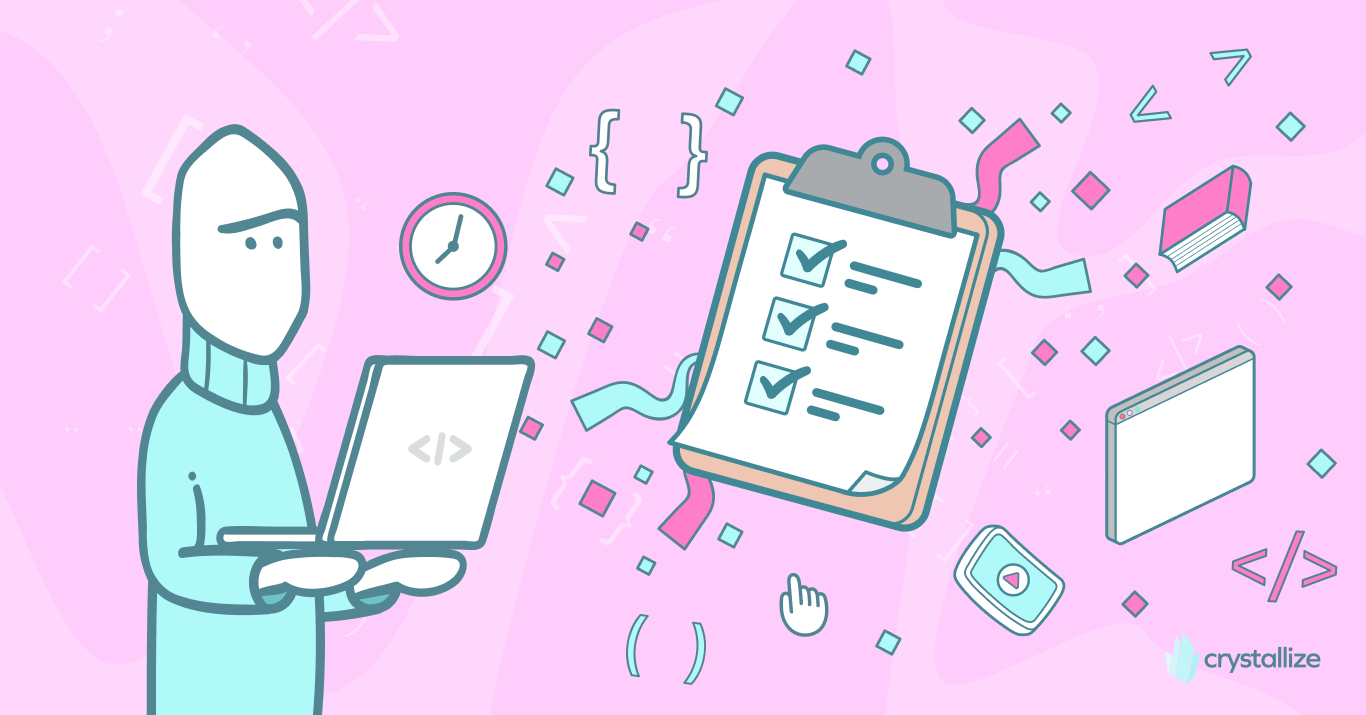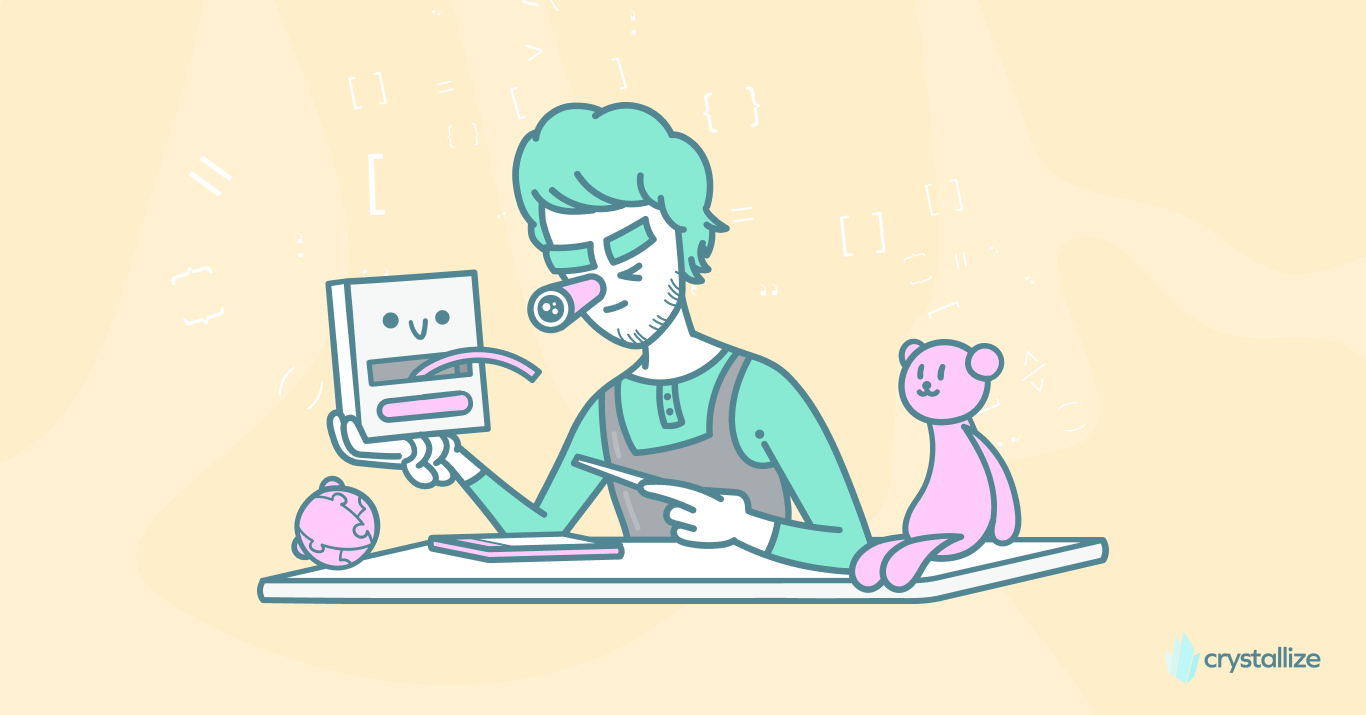7 Tips For Maximizing Developer Productivity
What does it mean to be a productive developer, and how can you become one?

Being a productive software engineer nowadays is getting more difficult due to the unlimited amount of information we absorb all the time. This tends to disturb us from our daily activities, making the right choice more difficult. As a result, we feel like the day has passed, but we have not managed to accomplish the tasks we wanted.
What can we do to change that?
Here is a list of 7 tips on how to improve your developer productivity, designed to make you a better and happier developer.
What Do We Mean When We Say Developer Productivity?
Before discussing developer productivity, let's clarify what it is and how we can measure it. Through the years, the meaning of the term developer productivity has changed quite a lot.
From measuring how many lines of code you can deliver, over the number of deployments/releases, to shipping code with confidence in meaningful time while maintaining a good developer experience (DX). As you can see, in the past, it was (kind of) easy to measure it by simply counting the number of lines, for example.
Measuring developer productivity today, however, is abstract and very complex. When it comes to developer productivity, we should picture not only the task we are up to today but also how today can help us be more productive in the future.
Measuring Developer Productivity
This classic quote by Peter Drucker carries the essence of why even the most abstract of things should be subject to measurement - and developer productivity falls into this category.
Start by marking the time you need to complete a task. Then, follow the steps below to improve your developer productivity - then, measure again. If you've managed to finalize the task within a smaller time frame, or if your code showed fewer issues, you've managed to level up your developer productivity.
Learn New Things and Stay on Top of the Trends
The most efficient way to increase productivity is by learning new things that improve your skills and make you a better developer. It goes as simple as learning the best practices for writing high-quality code that helps us produce clean code and avoid future bugs.
This way, we can easily refactor our code without wasting time reasoning it, and we save time troubleshooting bugs that should have never happened. Another example is making use of a new tool that can help us be more efficient in our tasks or improve the quality of code we ship.
Investing time learning new things will pay off immediately and level your productivity.
Choose the Right Tools
As developers, we heavily rely on tools to develop applications. I can't imagine writing code without an IDE (Integrated Development Environment) or source code manager, like Github. Without these tools, we would be very unproductive: for example, without them, we would still be caught in the game of trying to figure out where the closing bracket for a big code block is or trying to follow a change in the code through many different commits.
On the other hand, choosing the best available tools will increase our productivity even further.
I wrote a blog post about the essential web development tools that may help you pick the right one.
Have Focus Time and Don't Multitask
Generally speaking, it is very easy today to get distracted while working on a computer. Everybody has at least a few social channels to follow, a bunch of exciting pieces of content to look at, and spend time just clicking around.
But all of that does not really help us to get our task down. One thing that I try to do is to have a dedicated focus time during which I ignore all of that internet distraction. This really helps me stay concentrated and get my tasks done.
Another thing that kills productivity is multitasking. Jumping on a quick bug fix while in the middle of a developing big feature is a thing that happens to us once in a while. And as we all know, the bug often turns out to be more complicated than expected, and the feature we're working on may be left without covering an edge case, which later results in other bugs, and so on.
My advice here is to try to work on small tasks - one at a time - so when you need to jump on a different one, first finish the one you have active.

Avoid Premature Abstractions
My experience shows that mid to senior-level developers like code abstractions. It is a common misconception that having a lot of abstractions in your code makes you a better developer.
Quite often, this turns out to be wrong.
Having too many abstractions makes reasoning our code very difficult and error-prone when we need to extend the abstraction. So before adding a new abstraction, make sure that the code you are going to pull out is something that is already used at least in 3 places, and you can see good patterns in repeating yourself. Doing that will save you some time in the future, and it will make your code more robust and reliable.
Take a Rest When Hitting the Wall
Take a rest when banging your head against the wall for too long. I know that feeling when you think you are close to completing the task, but time flies, and no result comes.
I've been in this situation many times before, and even today, I need to remind myself about it. You will see that your productivity will increase a lot once you start actually doing it. Pause your task when there is no light in the tunnel and take a walk, do some exercises or sleep over the idea, and the result will be seen immediately.
Do Not Reinvent the Wheel
Take advantage of the existing tools and languages. In most cases, a good amount of developers support them, spending time and effort you cannot afford to spend to achieve the same result. We often forget that once we develop a tool, we need to maintain it and keep it up to date. That also takes time and kills our productivity.
Search for the tool or language you need, and if you cannot find the right fit, think about developing your solution as a last resort. Maybe then you may want to share with the rest of the community to help somebody else and give something back to the open source community.
Have a Good Communication Process
Our work often depends on other people's feedback, and receiving that feedback on time is essential for developer productivity. I am sure that it happens to everyone one of us once in a while to wait for a code review. And if you decide to start on a new task meanwhile, then all of a sudden, you are multitasking, trying to juggle between the tasks.
As a result, your productivity drops. That is why having a good process around tasks that depend on other people will increase your productivity and improve your life. For example, in the code review process agreeing among developers on the time frame to provide feedback and establishing a way to provide it sets the base for a good communication process around code reviews.
💡Developer Productivity at Crystallize.
At Crystallize, we don't measure productivity directly, rather seeing it as a result of happy developers and a healthy code base. We put a strong emphasis on becoming better developers. We take it very seriously and do our best to incorporate multiple practices in our daily activities, which then translate into enhanced developer productivity. For example, we never get tired of keeping up with industry trends and thrive on improving our communications process.
Moving Forward
I hope you've figured out that you will also become a better developer by increasing productivity. Pushing ourselves to learn new things, follow best practices, and improve processes are all natural things to do to become great at what we do.
At the same time, we become more efficient, we improve our developer experience, and as a result, our end users receive good and robust apps shipped on time.
